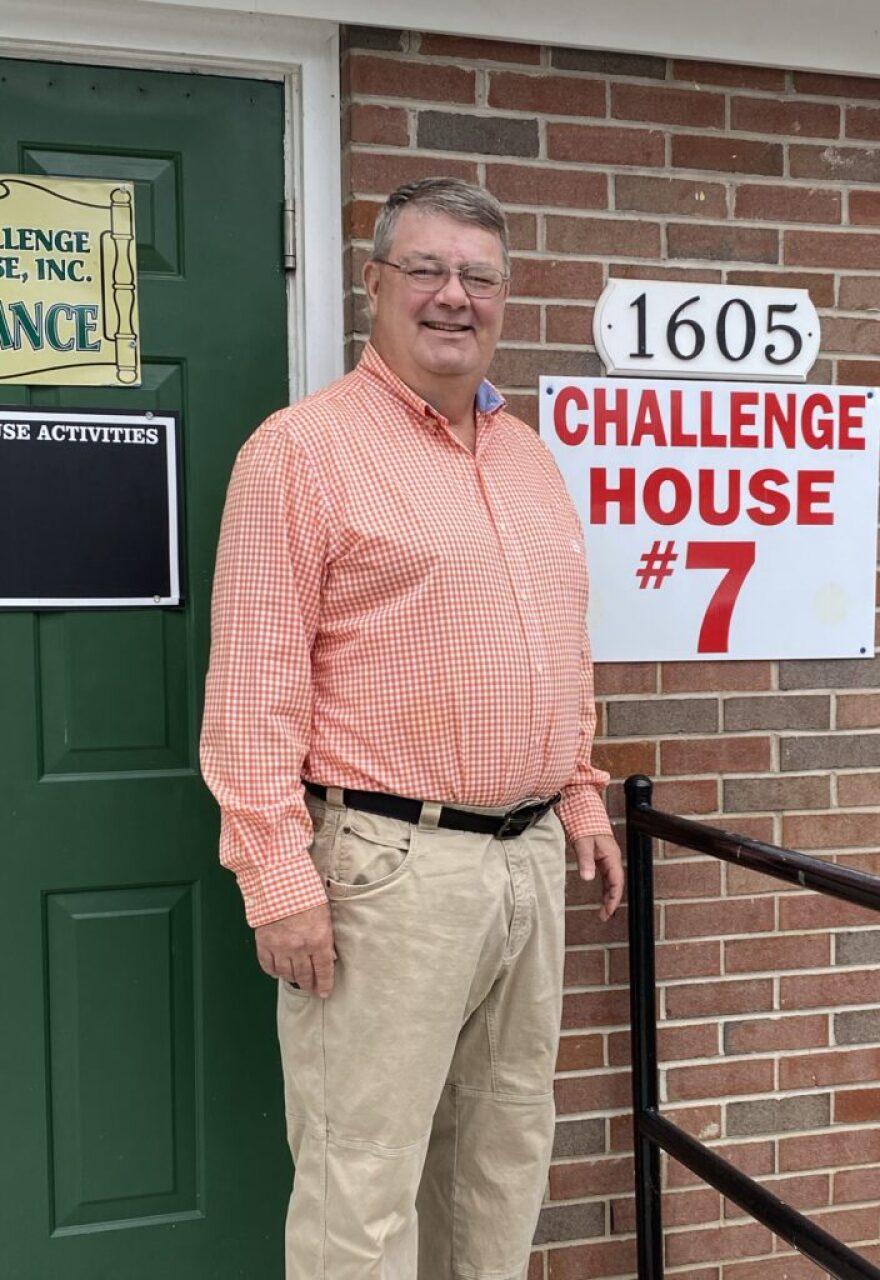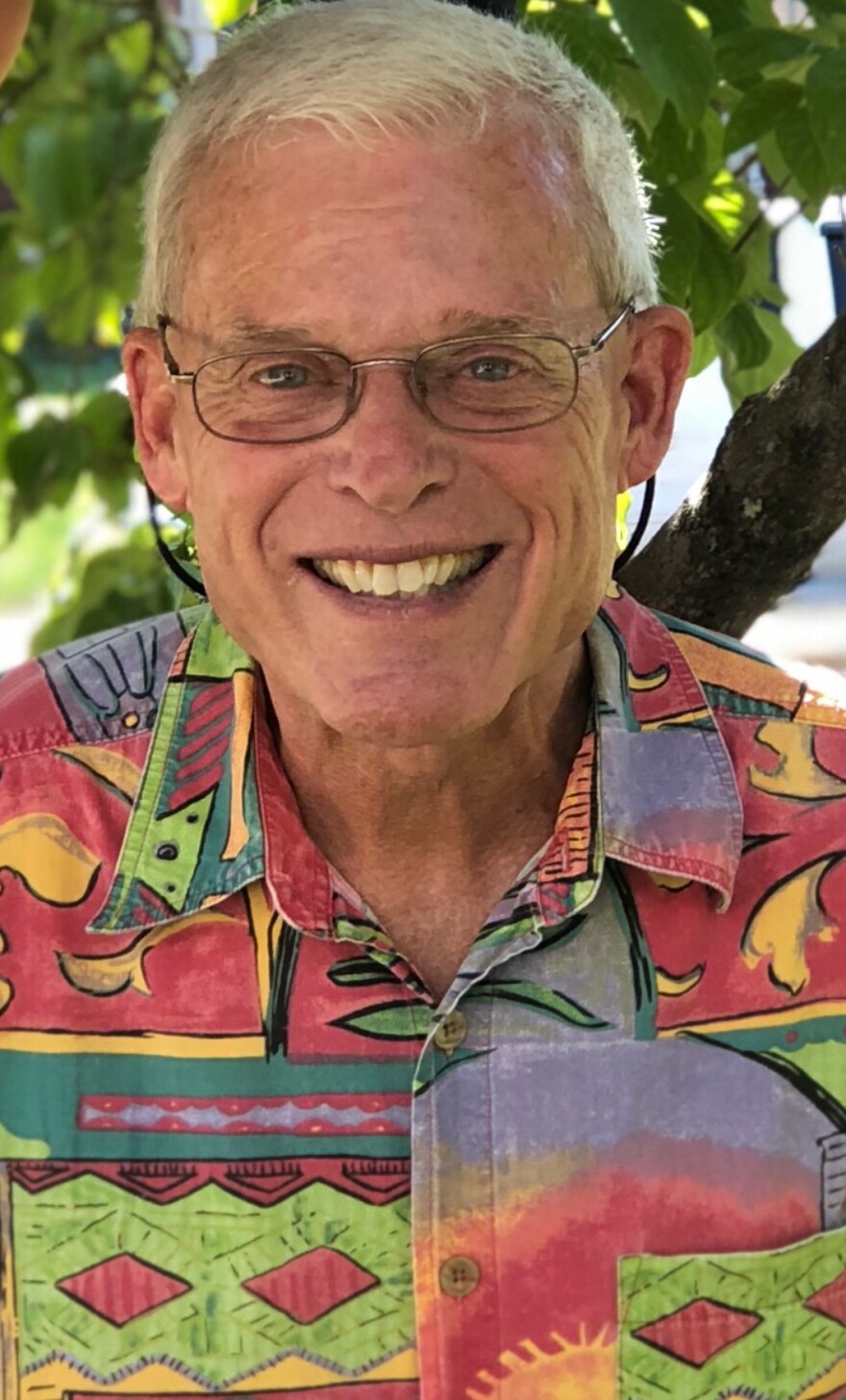This story is part of a WKMS News series highlighting organizations and groups helping others amid the pandemic.
A hyper-localized effort to combat crime and poverty in a western Kentucky community asks volunteers to live in the most crime-ridden parts, and leave their doors unlocked. And they do, following the example of the late and beloved Hopkinsville Mayor Wally Bryan.
Jeff Littlefield is one of them, known as an “ambassador” for the Challenge House.
“It's hard to say what an Ambassador is, because we're a lot of things,” he said. “I think that the important thing is, that they know I'm here, and that if they need something, they can come and ask me, if there's any way I can do it, I'll give it to them.”

Challenge House purchases homes in the center of local neighborhoods with exceptionally high crime and poverty rates. An ambassador moves into the home purchased by Challenge House and is responsible for tending to the needs of their neighborhood. They currently have six properties.
Littlefield said although the common perception in Hopkinsville is that he lives in a dangerous neighborhood, he doesn’t see it that way.
“I'm out in the neighborhood. At least once a day, I try to walk through the neighborhood,” Littlefield said. “Guys that I know ask me, ‘What do you mean, walking over there?’ I tell them I walk in this neighborhood 24/7, and I'm not concerned. I’m not worried, because they know that my motives are pure and that I don't want anything.”
Littlefield moved into his Challenge House a day before the COVID-19 virus was deemed a pandemic and quarantine began. For Littlefield, this meant coming in at full swing.
“Next thing you know, I moved in on the 16th [of March 2020] and they closed down everything on

the 17th due to coronavirus. So, it's been a unique, a very unique situation,” Littlefield said. “Within the first little while, the YMCA called and asked if we needed any meals and Indian Hills Elementary school set up a food program here, and then we just went on from there. There's 134 kids that go to school in the neighborhood so we were trying to get them fed. I mean most people here work or at least one family member works. They were laid off just like everybody else. So, it didn't take long to integrate into the neighborhood.”
According to a study completed by U.S. Facts, about 48% of Americans said they felt “down, depressed, or hopeless” since the COVID-19 pandemic began. The study also found feelings of anxiety and depression have a strong positive correlation with income. Respondents with lower household incomes reported more anxious and depressed feelings. The study shows approximately 65% of respondents in households earning less than $25,000 said they felt depressed, or hopeless, while only 37% of those in households earning more than $150,000 reported the same feelings.
Littlefield said one of his greatest and favorite responsibilities during this pandemic is just to be a person there to talk to, any hour of the day or night.

“People need stuff and they'll knock on my door late at night.” Littlefield said. “See, when somebody knocks on my door at three o'clock in the morning, I wake up and answer the door. I don't holler, ‘Go away, and come back,’ or ignore. That is not easy, because you don't know what's on the other side. I've never had a bad thing happen to me at two or three or four in the morning. But, I've had some things happen to me that literally blew me away. They left, and I just cried like a baby. You know, because how do you pick something like that?”
Littlefield said although the work his role as a Challenge House ambassador has been demanding during the pandemic, he has never felt more content.
“There's days when I just cry with joy. I mean, I've told people this many times that I've never been more content in my life,” Littlefield said. “The minute that you care more about what you're doing for the people around you, than you do yourself, then you're living. That's life.”
Aida Vega was the first ambassador to the first Challenge House in Hopkinsville. It was through her efforts that Challenge House became an accepted organization as it entered into skeptical neighborhoods, some of them predominantly Black communities. Vega said one day, shortly after moving into her Challenge House on Durrett Avenue,, she was asked by someone who lives in the neighborhood if she had a “white savior complex.”
“I'm just gonna be quite blunt and honest,” Vega said. “I was told by somebody, ‘Is this just a bunch of white people coming in to be white saviors to our community and when it gets hard they run?’ I kind of assured them that that was not the case, that the Challenge House was going to be there through the long haul.”
After reflecting on the accusation,Vega wanted to take a more genuine approach to the Challenge House’s process. She said her degree in social work taught her to enter into other’s lives humbly because “they are the expert of their own lives.” Vega said it was this mentality that led her to develop the Challenge Houses’ current operational methods.
“That's when the idea came to cultivate a more holistic approach of actually interviewing people within the neighborhood. So we canvassed and we surveyed, and based on that we created programs specifically for what they wanted,” Vega said. “So yes, there was skepticism, but I would say that attitude very quickly turned. Once they saw the initiative, they saw the programs, they saw the real heart behind it wasn't to be saviors to anyone, but really to be of service, having a servant's heart towards the community and providing the resources that they needed that they couldn't get to.”
The origin of the Challenge House in 2007 is widely known by citizens of Hopkinsville. When a former mayor of the city moved into the housing projects in the late 1990s people’s heads were turned. The late Mayor Wally Bryan set a mission to bring hope and opportunity to his city’s poorest communities.
According to research completed by Feeding America, 62% of Christian County’s population is below the Supplemental Nutrition Assistance Program (SNAP) threshold, meaning that they are below the 130% poverty requirement to receive SNAP. As recently as 2019, Hopkinsville’s crime rate was higher than approximately 83.6% of the United States according to a study done by City Data.
William Wallace Bryan, affectionately known as Wally by his community is the founder of Challenge
House. He is best described as being selfless and non-judgmental by those who knew him best. Two characteristics essential to the success of a Challenge House ambassador says Will Bryan, Wally’s son. Bryan said he believes the values upheld by his father’s non-profit reflect his dad’s view of people and their worth.
“After he was finishing up being mayor, actually, during the time that he was mayor, he actually for a

short bit actually moved into a housing project area. I think that was the big turning point for him. He started to understand the struggles of people in that community,” Bryan said. “My dad was definitely unique, I think probably a little eccentric. Anytime he could have homeless people living in his house. He just really truly befriended anybody. He was as comfortable talking to the governor of Kentucky as he would be talking to a homeless person laying in a sleeping bag and he would treat them both with the same level of level of respect.”
Bryan said his dad set the example for future Challenge House ambassadors. He recalled a time when his dad showed exceptional love and bravery.

“I'll tell you a story,” said Bryan, “He was riding his bike at midnight back to his apartment and there were these two guys fighting, they had a knife. He heard a man say, ‘I'm gonna kill you’. He didn't know either one of them and he rode his bike straight up to the middle of them and got off his bike and he got on his knees and started praying just right in the middle of these guys. Within like a minute, he's praying out loud right, within a minute he's got one guy touching him praying and then within like another minute he had the other guy doing.”
The Challenge House is currently searching for an ambassador for one of their locations. Those who would like to get involved with the Challenge House can contact Will Bryan at (270) 305 - 2775.





